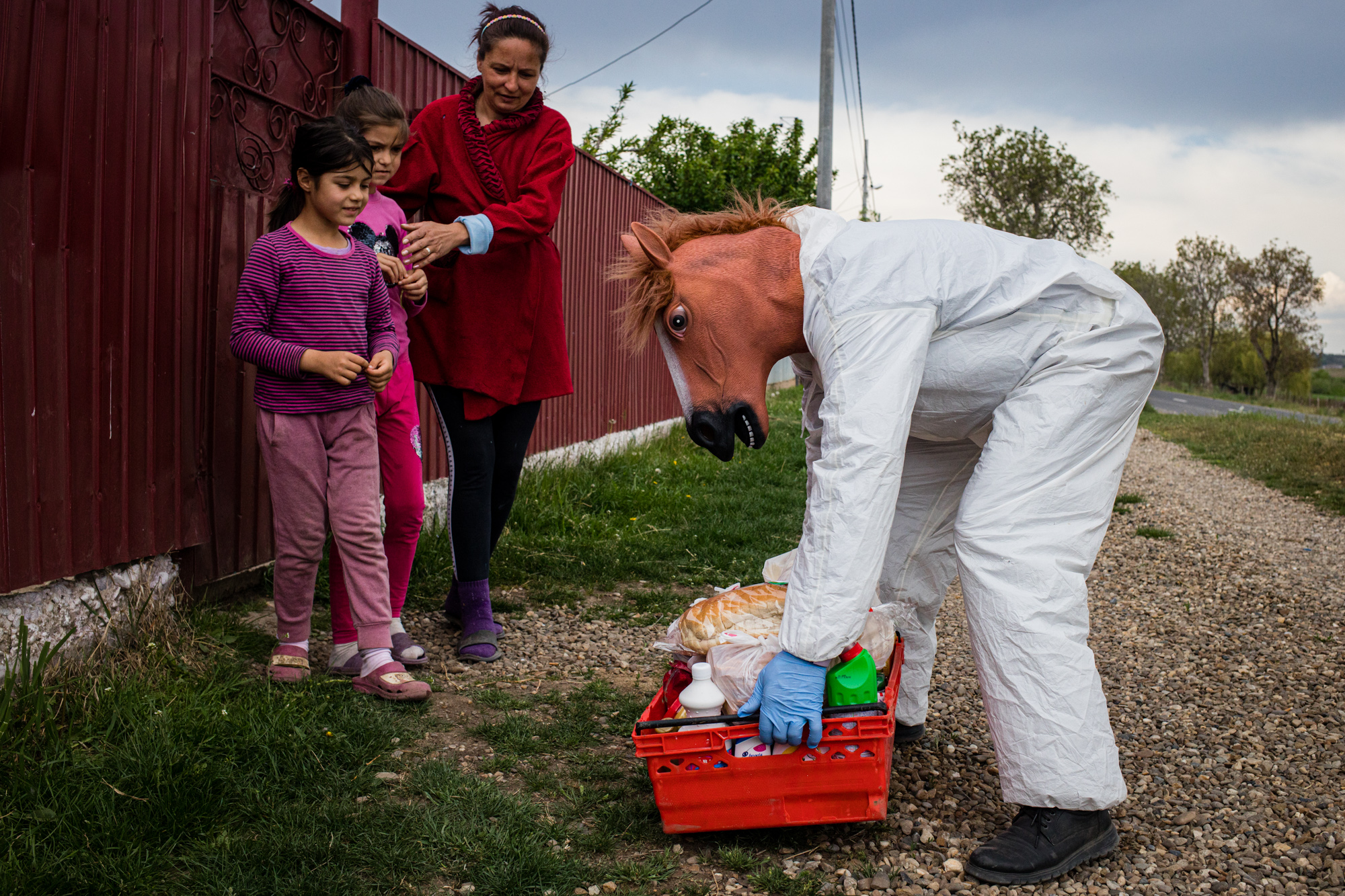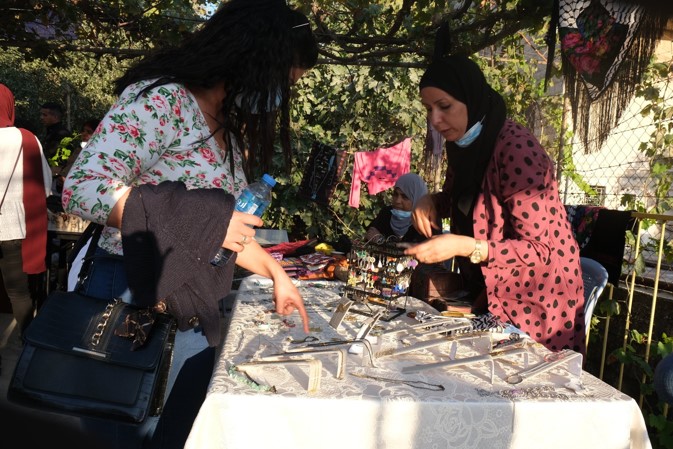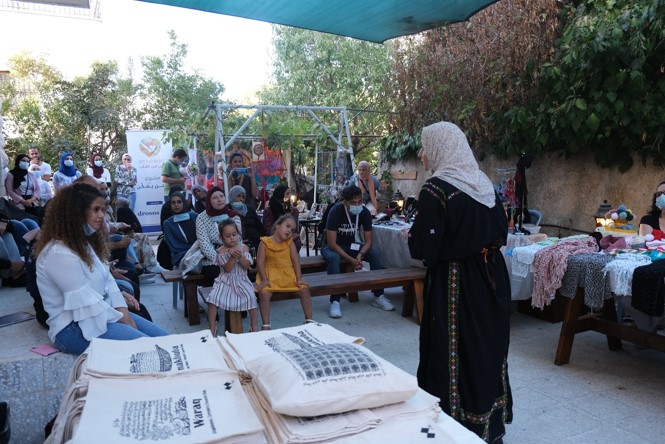Building local philanthropy against the backdrop of COVID-19
29 Mar 2021
The story of 2020 will undoubtedly focus on COVID-19, and its related health, social and economic impacts around the world. But there’s a lesser told story too: the story of the countless local and national civil society organizations that, as international organizations repatriated expat staff, stepped up, filled gaps and lead community responses to the pandemic. Community philanthropy organizations were quick to adapt, rapidly mobilizing local resources and developing new fundraising strategies to meet urgent needs. In March 2021, the GFCF brought together three community philanthropy organizations – Bucharest Community Foundation, Tewa – the Nepal Women’s Fund and the Dalia Association – for an online discussion to hear about their experiences in building local philanthropy against the backdrop of the pandemic.
In Romania, the Bucharest Community Foundation quickly realized that COVID-19 was exposing existing social and economic inequalities, with marginalized groups being disproportionately impacted by the crisis. Building from an existing relationship, the community foundation partnered with ING Bank to set up an emergency fund for vulnerable communities across the country, which saw ING clients giving small amounts via a mobile banking platform. Within just seven weeks, more than €175,000 had been raised: this included €75,255 from 4,291 individuals, with the average donation being €15. Working closely with 17 community foundations across Romania to identify urgent needs, more than 10,800 vulnerable individuals in 22 counties received hygiene kits, medical packages and warm meals. Beyond basic supplies, the community foundation also delivered hope and laughter. Volunteers who dropped off the care packages dressed up for the occasion (for example, as horses or rabbits), as the foundation recognized that joy would be a needed resource in order to endure the pandemic.
The Bucharest Community Foundation also had to get creative with “Swim-A-Thon”, its flagship annual fundraising event that between 2013 and 2019 involved 2,500 swimmers and raised €500,000 in small donations. In 2020 this transitioned to a “Swim-At-Home” event which ultimately was even more successful than its predecessors in terms of the number of swimmers involved, as well as the amount of individual donors to the event. Swim-at-home raised more than $130,000 USD but, more than that, signalled that Romanians weren’t waiting for assistance from the state or other actors – rather, they were mobilizing for themselves and for their community. The Bucharest Community Foundation was the mechanism through which this was able to happen.

Tewa’s “peer-to-peer” fundraising campaign mobilized funds for its partners across Nepal.
Similarly, in Nepal, at the outset of the pandemic Tewa quickly had to develop new ways of working. Tewa has over 25 years of experience in local fundraising and advancing womens’ rights but – like many other community philanthropy organizations – largely relied on in-person fundraising events, such as tree plantings, concerts and walk-a-thons, pre-pandemic. However, Tewa’s experiences in responding to the 2015 Nepal earthquakes had taught it important lessons about crisis response and adaptability. They were quickly able to pivot their focus, introducing a new “peer-to-peer” fundraising campaign, activating their close networks and mobilizing resources from Tewa’s volunteers, staff, board, grant partners as well as from the diaspora. Individual donors were encouraged to contact ten of their own friends, colleagues or family members, and to rally support for Tewa. This connected 184 new donors to Tewa who contributed $1,400 USD: funds which were immediately channelled back into Tewa’s grantmaking programmes. Beyond the vital funding provided, for Tewa this also means 184 individuals are now more interested, and invested, in work around advancing womens’ rights in Nepal – a valuable resource moving forward.
The Dalia Association has been active since 2007, and encourages Palestinians to mobilize resources in order to reclaim their rights, and in pursuit of durable development. For Dalia, community-building and fundraising go hand-in-hand, and they have a number of different events and initiatives which not only raise funds for Dalia’s community-controlled participatory grantmaking programmes, but which also aim to build community spirit. This includes quiz nights, Dukkan – their second hand shop and the social change auction – the only live crowdfunding event in Palestine that raised $4,000 USD on the evening it launched in 2019. As the effects of the pandemic began to be felt in Palestine, Dalia witnessed an immediate upsurge in giving and support, as communities rallied around those in need. Dalia saw its role in this as creating spaces for this solidarity to grow. As online giving is still nascent in Palestine, where possible, and taking into account all safety protocols, Dalia continued to organize in-person community activities. A “Market of Initiatives”, for example, was a new event where local artisans could come together to sell their products and gain needed income.
To sustain Dalia’s community grantmaking programmes during the pandemic, Dalia continued its #FunRaiseForDalia campaign, which encourages Palestinians at home and in the diaspora to get involved in the work of Dalia by organizing their own fun-raising events. It’s important to note that the “d” was intentionally removed from the word “fund”, not only to signal that Dalia additionally mobilizes in-kind donations but – more importantly – because they intentionally centre joy and humour in their approach to community building.
Key takeaways from the session for community philanthropy practitioners
- In times of crisis, you can’t wait for outside help or assistance: the importance of having rooted local institutions with deep understanding of the local context cannot be overstated.
- Relationships matter: community philanthropy organizations were able to respond so rapidly to COVID-19 because they had strong local networks of donors and allies already in place. They could understand who was doing what and where were the gaps that needed filling, mobilizing resources to do so.
- In community philanthropy, money is not the only asset: getting lots of people – staff, board, partners and the public in general – to give small amounts or in-kind, is as much about harnessing energies, awareness, mutuality and solidarity, i.e. the “wiring” of effective, connected and caring communities, as it is about money. In fact, COVID-19 saw many organizations around the world in the position of having funding that they weren’t able to use because it was designated only for project use.
- A crisis can produce a sudden surge in giving: having strong systems in place, deliberately designed to handle donations and account for how they are used, are essential if public trust is to be preserved.
- Don’t forget the human side of things: community philanthropy organizations recognized the importance of centring joy, fun and hope in their activities, in spite of the situation.
Thoughts from the speakers
Following the session, the speakers and other colleagues involved in preparing the conversation offered their reflections on both the topic of “building local philanthropy”, as well as the process for putting together the session.
“It was a great learning opportunity for us to hear about different bottom-up approaches that are happening in different corners of the world. We learned a lot about different local resource mobilization strategies that can be applied in our context in Nepal. We were also delighted to share Tewa’s work, particularly with new audiences, and hope that the different development actors who joined the discussion left with new ideas and a new appreciation for how community philanthropy shifts power.”
– Basanti Lama and Urmila Shrestha, Tewa – the Nepal Women’s Fund
“Setting up this session allowed us to get a better understanding of each other’s work. This process provided us with a space to connect. Although we have met on several occasions, having time to discuss the specific topic of ‘building local philanthropy’ allowed us to have a deeper conversation. This widened our vision concerning different practices, models, and examples of community philanthropy, and how different contexts play such an immense role in developing these different practices.
It was a reminder for us of how important and challenging our work is, especially during the COVID-19 pandemic, and how crucial these sessions are for learning and further developing our approach. We also felt a shared sense of solidarity and support, allowing us to see the bigger picture and positioning of the community philanthropy model in unlocking people’s power. What was also fascinating is the constant and creative harmonious adaptation of community foundations’ with their communities and circumstances.”
– Lina Ismai’l, Rasha Sansur and Hedaa Saqqa, Dalia Association
About this webinar series
The GFCF’s grantmaking in 2020, 2021 and 2022 has supported our community philanthropy partners in their local responses to COVID-19, both in the short and longer term. Surveys of grant partners revealed clear commonalities across our global network in the issues these organizations were facing. Over 2021, we offered a series of partner-led and organized learning and sharing sessions to delve into these topics further. Other sessions have included: Engaging marginalized and minority groups; Localism, livelihoods and circular economies: The role of local foundations in creating opportunities and building more durable communities; Community philanthropy and participation; and, Getting it right with corporate philanthropy.





